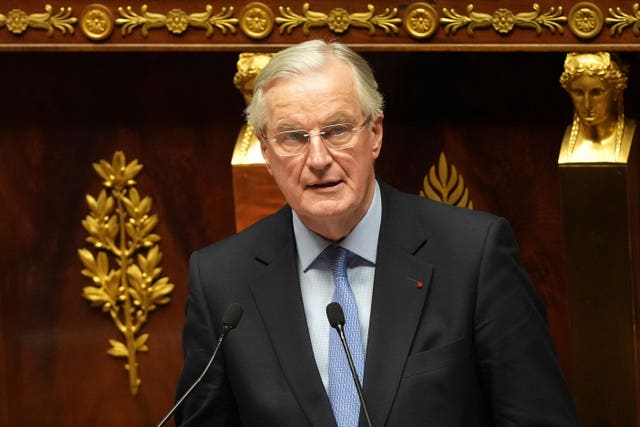Macron to address nation day after no-confidence vote topples government
The National Assembly ousted Prime Minister Michel Barnier in a historic no-confidence vote on Wednesday.

French President Emmanuel Macron is expected to address the nation on Thursday, a day after the National Assembly ousted Prime Minister Michel Barnier in a historic no-confidence vote that has left France without a functioning government.
Mr Macron is expected to focus on stabilising the political crisis and possibly naming a new prime minister to navigate the fractured parliament.
Mr Barnier formally submitted his resignation Thursday morning at the Elysee Palace, fulfilling a constitutional obligation.

The no-confidence motion passed by 331 votes in the National Assembly, forcing Mr Barnier to step down after just three months in office.
Mr Barnier, a conservative appointed in September, will become the shortest-serving prime minister in France’s modern Republic.
The no-confidence vote has galvanised opposition leaders, with some explicitly calling for Mr Macron’s resignation.
Manuel Bompard, leader of the far-left France Unbowed party, said: “I believe that stability requires the departure of the President of the Republic.”
Far-right National Rally leader Marine Le Pen, whose party holds the most seats in the Assembly, did not explicitly call for Mr Macron’s resignation but warned that “the pressure on the President of the Republic will get stronger and stronger”.

Mr Macron, however, has dismissed such calls and ruled out new legislative elections.
The current French constitution does not call for a president to resign after his government was ousted by the National Assembly.
“I was elected to serve until 2027, and I will fulfil that mandate,” he told reporters earlier this week.
The constitution also says that new legislative elections cannot be held until at least July, creating a potential stalemate for policymakers.
Mr Macron’s speech, scheduled for 8pm local time, is expected to address the economic challenges heightened by the political instability while setting a course for the future government.




